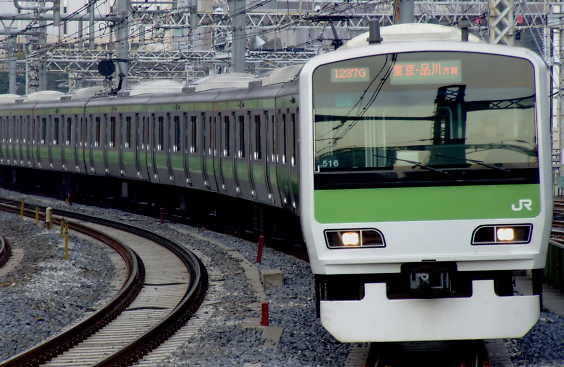Top Tips For Expats Moving To Japan
Japan can be one of the most difficult countries for westerners to move to. While this is a fascinating country with loads to discover, the social rules and relatively closed society can leave newcomers feeling baffled and excluded from mainstream Japanese society. While there are plenty of bars, restaurants, and other entertainment offerings aimed at expats, many people who move to Japan want to take the opportunity to integrate themselves into Japanese society. In this guide, we’ll show you the pros and cons of moving to Japan, where to go if you’re looking to meet new people, and start making your way in Japanese society.

Differences in Office Culture
The office culture in Japan can be one of the most difficult things for newcomers to get their head around. Offices are very hierarchical and time served in the company makes a lot of difference. This means that you may have to take some time to prove yourself, even to relatively junior employees before you manage to become fully embraced by your colleagues.

There are a few other things that you will want to keep in mind if you have become used to the culture of an American or European workplace, particularly if you have been working in finance, media or another industry that is known for a relatively relaxed and informal work environment. Firstly, make sure that you ask your superior for approval before taking any major decisions. While some western companies operate on a ‘shoot first and ask questions later’ mentality, the sign off process is very important in Japan. Even if you make the correct decision, your superior will take your decision to avoid consulting them as a loss of face. A little discretion goes a long way in Japan and the concept of losing face is a fact of life.

Secondly, individuality is not valued. If you are self-centred and only interested in improving your own opportunities within the company, then the odds are that you will not prosper (and even if you do prosper, you will make few friends in the process). Instead, focus on the company as a whole or, if you would rather take a more direct focus, on your immediate team or department.
Socialising With The Colleagues
The good news is that this tight office culture leads to a lot of socialising between colleagues, which is a good opportunity to get to know people and understand the rules by which Japanese society operates. This can often take the form of long drinking sessions that tend to up in a karaoke bar at around two o’clock in the morning. Unfortunately, this can mean that you will have to sit and listen to your managers’ somewhat questionable singing and tell them that they are the next Beyoncé, on the other hand, if you can enjoy it, the cheap drinks and good company make for a good night out.

The Japanese are also a sports mad people, so if you think you will miss out on your favorite sports and games, fear not. You will surely find fellow fans in your office and social groups. And now that Japan, and Tokyo in particular, is gearing up towards Tokyo 2020 Olympics, you are lucky to be here! Get involved or go see the events and bet on your favorites for the Games. In true Japanese style 2020 is going to be one long festival of sports, entertainment and Japanese hospitality. You will see the mascots Miraitowa and Someity everywhere as we get closer to 24th July 2020 and the opening ceremony kicks off.
Working Hours
The final thing to keep in mind is that Japanese people tend to work ling hours and presenteeism is definitely a part of the work culture. This means that, even after a night out like the one that we have just described, you will be expected to show up at your desk at the usual time in order to do the usual amount of work. Make sure that you have stocked up on tablets and have plenty of coffee before you arrive at your desk so that you can at least look the part even if your head is still spinning. Unfortunately, this can also take the form of people spending hours longer at their desk than is probably necessary. Going home before your superior does is rarely a good way to advance within a company and, unfortunately, this can lead to people sitting at desks for hours longer than they need to without actually accomplishing anything useful.
Learning the language

It is just about possible to get around and survive in a major city without speaking Japanese but you won’t be getting the full experience and the chances are that you will really start to struggle if you decide to explore rural Japan without at least a rudimentary grasp of Japanese.
Unfortunately, because of the way Japanese is written and structured, there isn’t really any way for English speakers to cheat at the learning progress. The best advice that we can give is that it is better to study for a little bit every day in order to get Japanese characters and common words and phrases into your head. This is generally more effective than studying for long periods at irregular intervals as the frequent exposure to the material helps it lodge in your brain. If possible, find someone else who is learning and catch up frequently to check on progress and compare notes. There are also so called crash courses that will get you the very basics, so you have a good starting point.
Practice whenever you can!
The best way to learn Japanese is to take every opportunity to speak it. Japanese people generally don’t expect foreigners to speak their language and will generally be surprised and patient with any mistakes if you do. In fact, this lack of expectation often leads to indiscretion on the part of native Japanese people and if you do become fluent, the chances are that you will be able to eavesdrop on a number of things that Japanese people would not say in front of people who they assumed spoke their language.
Finding an apartment
Renting an apartment legally can be a difficult task for foreigners moving to Japan. There are no laws which prevent landlords from discriminating against tenants on the basis of race or nationality. Unfortunately, this means that many companies use these factors as a reason to charge extra or deny a rental entirely. This is partially justified by fears of flight risk and communication issues with foreigner, yet even when a newcomer has a Japanese spouse and a highly developed network of Japanese contacts, problems like this can still occur. There is no shortage of horror stories on the internet when it comes to foreigners having problems and as foreign residents cannot vote, there is little imperative for the Japanese government to improve the situation.
Specialist Relocation Services and Guarantors
If you have recently arrived in Japan and don’t have the contacts required to find a guarantor, then it is well worth contacting a specialist relocation company that has good relationships with Japanese landlords in order to smooth out the experience. They will be able to check credentials from your home country and vouch for you with Japanese landlords that they have existing contacts with. Be sure to check their reviews and credentials and remember that you will probably have to pay more if you do choose this method. It can be more expensive than a standard rental but is well worth it in terms of reduced stress and hassle.
Cash and Credit Cards
Japan has a reputation for being a modern and advanced economy and, consequently, many visitors and new residents are surprised when they arrive in the country and discover that many outlets do not accept credit cards. Credit card acceptance in Japan is far lower than in the West or even in general, you should keep about 10,000 Yen on you at all times and if you’re planning to pay by card, check that the restaurant you have chosen accepts them before you sit down and order – this will help you to avoid any embarrassing or awkward situations when you are out eating.

Getting a mobile phone and data
Japan used to operate on a mobile network system that was mostly incompatible with European phones. Thankfully, the move to 4G and 5G networks has smoothed out these incompatibilities and it is now possible to use almost any unlocked phone on a European network, although check which frequencies your phone supports before you do come to Japan as problems can still occur.

When you first arrive, you will not be able to sign up to a mobile phone contract from a major Japanese network as all of these require an ID and proof of address which you are unlikely to be able to provide as soon as you arrive at the airport. Fortunately, there are a number of services which offer Japanese SIM cards for tourists which should be enough to tide you over until you are able to supply the documents required by one of the major telcos. The best part is that these SIM cards can either be shipped outside of Japan so that you can connect as soon as your plane’s wheels hit the tarmac or collected in the arrivals area of major Japanese airports. Make sure that you get a regular Japanese phone number as soon as you can though as these are often used to verify identities by Japanese companies and signing up for certain online accounts can be a bureaucratic nightmare if you do not have one.
Japan is a country unlike any other and the advantages of moving there can be huge in terms of your work experience and versatility. If you take some time to prepare yourself before you get on the plane, you are likely to be in a far better position to take advantage of all the country has to offer.
